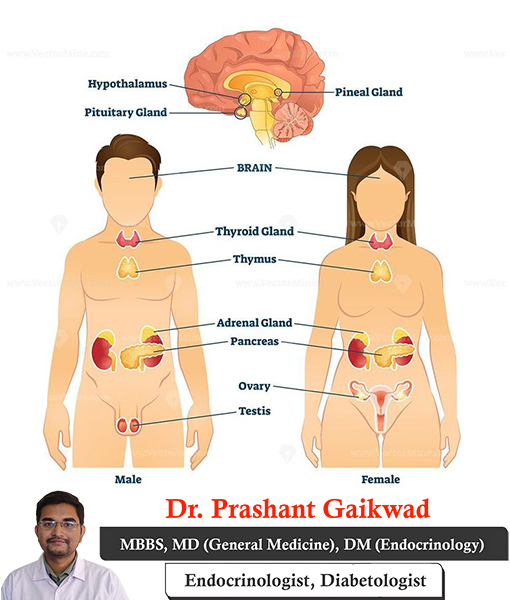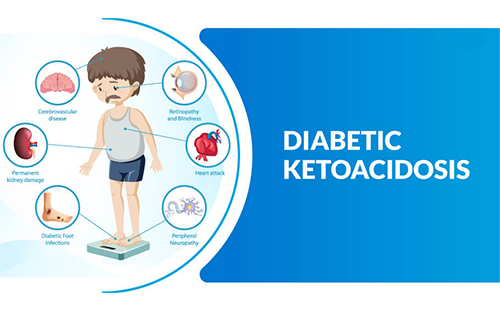Endocrine emergencies require prompt and effective treatment to prevent life-threatening complications. Dr. Prashant Gaikwad, a renowned endocrinologist, provides expert care in managing these critical conditions. Below are three major endocrine emergencies: thyroid storm, myxedema coma, and diabetic ketoacidosis.
Thyroid Storm:
Hyperthyroidism occurs when the thyroid gland secretes excessive thyroxine. This condition is often caused by Graves' disease but can also result from thyroid or pituitary tumors, thyroid inflammation, excess iodine intake, myocardial infarction, major infections, thyroid trauma, salicylate overdose, diabetic ketoacidosis, congestive heart failure, or pulmonary embolism.
A thyroid storm represents a severe escalation of hyperthyroidism, characterized by:
Altered mental status, Hypertension, Tachycardia, Tachypnea, Hyperthermia with hot, diaphoretic skin, Low blood sugar levels, Dehydration due to nausea, vomiting, and diarrhea
Myxedema Coma:
Hypothyroidism, the opposite of hyperthyroidism, occurs when the thyroid gland does not produce enough thyroxine to meet metabolic needs. This condition is significantly more common in women than in men.
Symptoms of hypothyroidism include: Chronic fatigue, Cold intolerance, Weight gain, Headache, Constipation etc
Severe hypothyroidism can lead to myxedema coma, a life-threatening condition with symptoms such as: Profound bradycardia, Hypotension, Hypothermia, Slow, shallow respirations, potentially leading to respiratory arrest, Altered mental status ranging from confusion to deep unconsciousness

